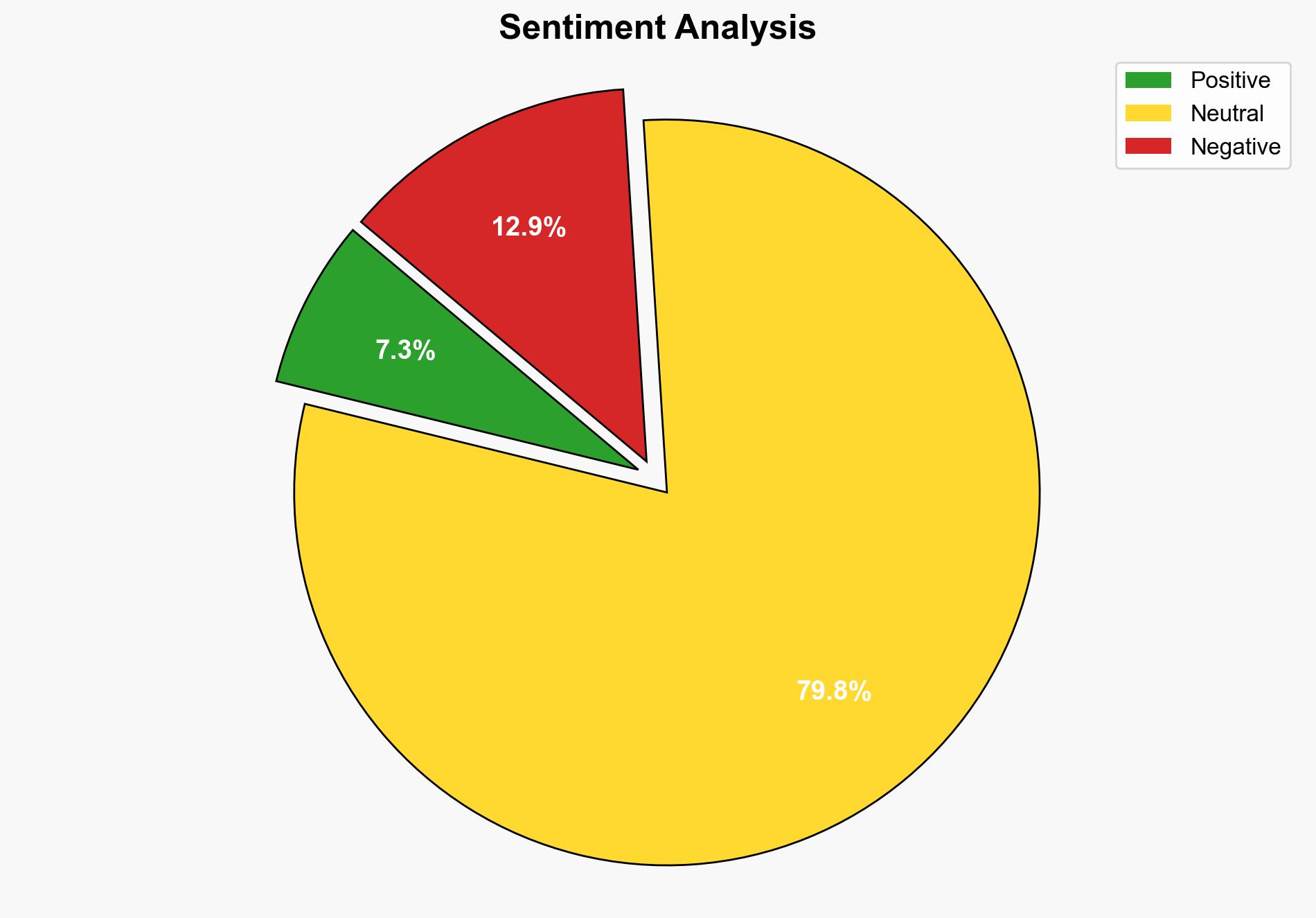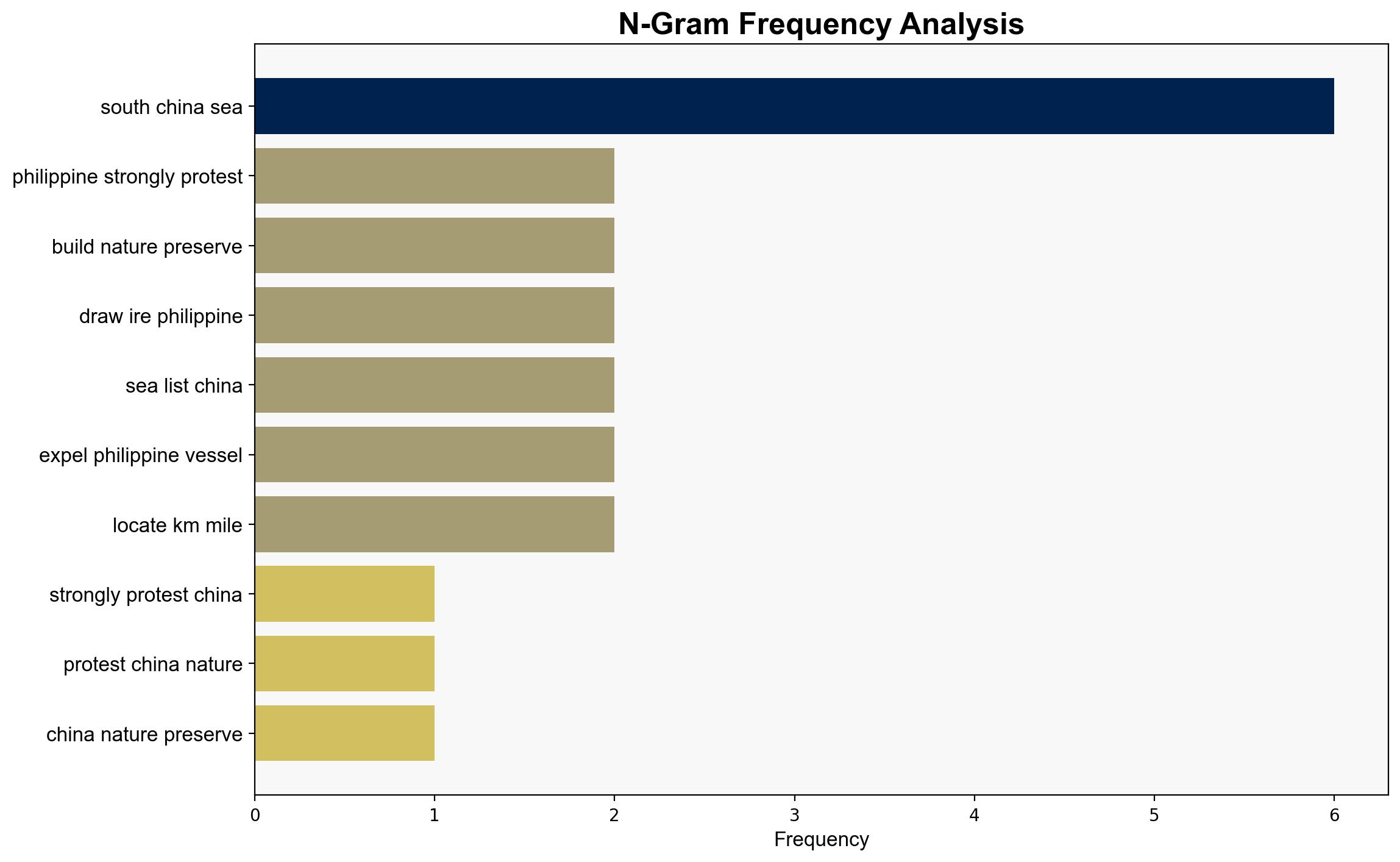Philippines strongly protests China nature preserve in South China Sea – Al Jazeera English
Published on: 2025-09-11
Intelligence Report: Philippines strongly protests China nature preserve in South China Sea – Al Jazeera English
1. BLUF (Bottom Line Up Front)
The Philippines’ protest against China’s establishment of a nature preserve at the Scarborough Shoal highlights escalating tensions in the South China Sea. The most supported hypothesis is that China aims to solidify its territorial claims under the guise of environmental conservation. Confidence level: Moderate. Recommended action: Strengthen diplomatic coalitions and increase regional maritime presence to counterbalance China’s strategic maneuvers.
2. Competing Hypotheses
1. **China’s Environmental Strategy Hypothesis**: China genuinely aims to preserve biodiversity and sustainability at the Scarborough Shoal, using environmental conservation as a legitimate front for its activities.
2. **Strategic Territorial Claim Hypothesis**: China’s nature preserve initiative is a strategic move to reinforce its territorial claims and assert control over the disputed area, leveraging environmentalism as a soft power tool.
Using ACH 2.0, the second hypothesis is better supported due to historical patterns of China’s territorial assertions in the South China Sea and the strategic importance of the Scarborough Shoal for regional dominance.
3. Key Assumptions and Red Flags
– **Assumptions**:
– China has the capability and intent to use environmental initiatives as a strategic tool.
– The Philippines will continue to diplomatically oppose China’s actions without escalating to military conflict.
– **Red Flags**:
– China’s historical disregard for international rulings, such as the UNCLOS decision.
– Lack of transparency in China’s environmental plans, suggesting potential ulterior motives.
– **Blind Spots**:
– Potential internal pressures within China influencing its South China Sea strategy.
– The role of other regional players like Vietnam and Malaysia in the evolving dynamics.
4. Implications and Strategic Risks
– **Geopolitical Risks**: Increased tensions could lead to military skirmishes, affecting regional stability.
– **Economic Risks**: Disruption of global maritime trade routes, impacting economic activities.
– **Psychological Risks**: Heightened nationalistic sentiments in both China and the Philippines, complicating diplomatic resolutions.
Potential escalation scenarios include increased military presence by both nations and involvement of external powers like the United States, which could lead to broader regional conflicts.
5. Recommendations and Outlook
- Strengthen alliances with regional partners and international bodies to diplomatically pressure China.
- Enhance maritime surveillance and defense capabilities in the South China Sea.
- Scenario Projections:
- Best Case: Diplomatic resolution with China agreeing to international oversight of the nature preserve.
- Worst Case: Military confrontation leading to regional instability.
- Most Likely: Continued diplomatic standoff with periodic escalations.
6. Key Individuals and Entities
– Lin Jian (Chinese Foreign Ministry Spokesman)
– Philippines Department of Foreign Affairs
– Chinese State Council
7. Thematic Tags
national security threats, geopolitical strategy, regional focus, environmental diplomacy





